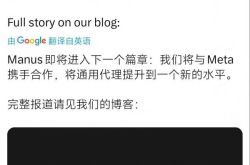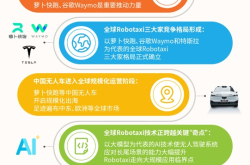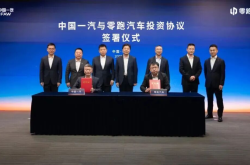Can 1688 reverse the trend of internal competition and dismantle the 'three mountains' weighing down merchants?
![]() 08/16 2024
08/16 2024
![]() 683
683
Merchants are exhausted from the intense competition.
For example, He Yudi, a second-generation factory owner born in the 2000s, runs a fishing tackle company in Dongyang, Zhejiang. The company mainly manufactures fishing tackle for branded clients, selling products domestically and in over ten countries worldwide. After taking over his father's business, He noticed that fishing lines priced at 5.9 yuan with free shipping were available on an e-commerce platform.
He couldn't fathom how these merchants were making a profit at such a low price.
The three mountains weighing down merchants
"Later, I heard that many people were making money by slipping in small game cards from game companies into their packages to earn advertising fees and offset losses," he said.
This is just one example of how merchants get caught up in price wars. In addition, merchants must also compete in terms of service. He Yudi revealed that after various e-commerce platforms introduced a 'money-back guarantee' service, the return rate for fishing lines surged to 20%, leading to a significant increase in costs.
Furthermore, he discovered that the money-back guarantee had given rise to a group of so-called 'wool grabbers,' who organize and target specific stores to create the illusion of demand, skewing platform traffic towards them.
For merchants operating legitimately, this has a direct impact: even with substantial promotional expenses, they struggle to reach their target audience, which becomes distorted.
In reality, He Yudi is highlighting an industry truth: Over the past two years, the e-commerce industry has been locked in a near-frantic race to the bottom. Strategies like price comparison, automatic price matching, and hundred-billion subsidies have fueled a distorted consumer culture while also giving rise to professional 'wool grabbers' who resell second-hand goods, putting immense pressure on platforms and merchants.
Behind these extreme low prices lie low profit margins or even losses for platforms and merchants. Doing business in this environment has become increasingly challenging, with merchants weighed down by the 'three mountains' of operational difficulties, high costs, and low profits. Criticism over issues like the money-back guarantee, low-price competition, and frequently changing policies has intensified.
Ma Shuzhong, Dean of the China Institute of Digital Trade at Zhejiang University, stated that Chinese manufacturers must maintain a net profit margin of over 10% to support the digital transformation of domestic demand. Otherwise, Chinese manufacturing risks suffocation in a cycle of low prices.
These feedback loops necessitate that platforms take action, prioritize merchant interests, and ease the burden of doing business to prevent merchant attrition.
This is an inescapable reality. As the e-commerce industry enters an era of market saturation, abundant supply has become a critical factor influencing consumer purchasing decisions. High-quality merchants have become the 'moat' of e-commerce platforms, especially those located in industrial clusters, which are fiercely contested by domestic and cross-border e-commerce platforms.
1688 aims to reverse internal competition
In this context, 1688, Alibaba's direct sales platform for factory-sourced goods, with its inherent B2B focus, initially expanded its market share by catering to consumer demand for value-for-money products and attracting C-end traffic. For instance, in March this year, 1688 upgraded its buyer experience with new features like free shipping on orders as low as 0 yuan, guaranteed two-to-three-day delivery, and return shipping coverage.
These changes left some manufacturers who previously focused solely on B-end business feeling lost. He Yudi complained about the plethora of constantly changing platform policies, saying, "I used to focus on factory orders, but now I'm expected to offer money-back guarantees and guarantee 24-hour delivery on even single-item orders, causing significant headaches for merchants."
Dong Fanming, General Manager of Shanghai Xinmai Food Industry Co., Ltd., is also a second-generation factory owner. His family's factory not only produces mooncakes for brands like LV, Gucci, and Dior but also manufactures butterfly cookies with proprietary designs. He admitted that free shipping has directly increased product costs. When shipping costs exceeded product prices, Dong had to adjust the pricing of mooncakes, impacting sales.
He also mentioned that last year, through both internal and external traffic diversions, a significant number of C-end customers flocked to their 1688 store, resulting in thousands of unshipped orders daily. Due to industry competition, he increased advertising spending by 20% compared to the previous year but only achieved 20% of last year's exposure.
While the platform's response may have been somewhat delayed, 1688 has noted merchants' dissatisfaction: Doing business on 1688 has become increasingly complex, requiring dedication to earn significant profits. Many merchants have also reported inaccurate platform traffic, unclear charging rules, and frequently changing operational guidelines, making it challenging for factories to manage their 1688 stores without external assistance.
In response, 1688 acknowledged, "C-end, B-end, and cross-border buyers are intermingled, and the platform made a mistake by requiring merchants to establish a service benchmark for all buyers. Additionally, services like the money-back guarantee and shipping timelines have caused significant distress for merchants."
To retain and attract more B-end merchants, 1688 vocally advocated against internal competition and introduced a series of measures. These include the 'Efficiency Enhancement and Revenue Increase' program for source factories in industrial clusters and the launch of a free 'AI Business Assistant' to correct the business direction, helping merchants overcome the three mountains and simplify doing business on 1688.
The 1688 merchant team stated that the platform has simplified merchants' business models, offering two options: independent operation and supply mode. Merchants choosing independent operation will receive a free AI Business Assistant from 1688. Those seeking faster shipments can opt for the supply mode, with the platform providing managed services. In short, it's "AI for independent operation and managed services for supply mode."
Regarding revenue growth, 1688 guarantees new merchants customer acquisition and orders, ensuring they receive at least 50 B-end orders or buyers per month for the first three months. Premium merchants and Super Factories enjoy green channel access to core traffic scenarios without transaction volume thresholds.
Furthermore, 1688 plans to allocate tens of billions in traffic subsidies, increasing product exposure by over 40% and reducing the average click cost by 38%. For every 1,000 clicks, merchants can save 38% on promotion costs.
To facilitate merchants in adapting to frequent small purchases, quick response to small orders, and flexible production needs, enhancing operational convenience, 1688 will provide a free 'AI Business Assistant,' with all subsequent AI products for merchants also being free. Currently, annual fees for similar AI products in the market typically exceed 10,000 yuan.
According to 1688, this AI Business Assistant is a team of digital employees with professional operational experience, built upon 24 years of knowledge accumulation in the B-end e-commerce sector. Key team members include an AI store manager, AI content operator, AI marketing promoter, and AI customer manager.
During the initial grayscale testing phase, the AI Business Assistant was prioritized for merchants with weaker e-commerce operational capabilities. During the test, merchants using the product found their business operations 60% easier, with a 50% increase in business opportunities on average. Tasks previously requiring a dedicated operator can now be completed with just 0.2 FTE using the AI Business Assistant.
After the shot is fired, it's time to catch up
'Make it easy to do business anywhere' is Alibaba's mission, which has also become 1688's primary focus. Media outlets have praised 1688 as the first e-commerce platform to publicly advocate against internal competition.
Tang Chen believes the root cause is that 1688 recognizes its core competitiveness lies in supply and remains a pure B2B platform. Despite the influx of young people bringing more C-end traffic, over 90% of transactions still occur on the B-end side, as emphasized by relevant platform executives. 1688 is not transitioning into a hybrid B2B/B2C platform but aspires to become a digital supply chain platform.
In e-commerce transactions, the line between B-end and C-end users is increasingly blurred. For instance, individual purchases may be for sampling, testing, or casual browsing before formal procurement. A more typical scenario is an administrative purchaser making purchases for work during the day and then as a personal consumer at night. 1688 revealed that tens of thousands of C-end users transform into B-end users monthly, totaling millions annually.
In this context, 1688 has fired the loudest shot against internal competition in the e-commerce industry. However, its measures are also being pursued by other platforms, and their effectiveness remains to be seen.
Beyond this, 1688 faces both internal and external challenges.
Currently, 1688 boasts the largest number of source factories in China. Data indicates that there are over 6 million factories nationwide, with 2 million being large-scale. Based on these figures, 1688 accounts for one-tenth of all factories in China and one-third of large-scale factories. By mid-December 2023, 1688 surpassed 1 million merchants, including 600,000 source factories.
However, this competitive advantage is under pressure from domestic and international e-commerce giants like JD.com, Pinduoduo, Douyin, and Amazon. Public information shows that in February this year, Douyin E-commerce released a report on industrial clusters, stating that the platform covers 684 specialized industrial clusters nationwide, with merchant numbers growing by over 194% and over 1.09 million live streaming sessions. In April, JD.com established its first national electronics cooperation industrial cluster in Huaqiang North, leveraging 'e-commerce + live streaming' to facilitate merchant transformation. Amazon announced in June its expansion into dozens of industrial clusters in Guangdong, Zhejiang, Fujian, Jiangsu, and other regions, integrating more merchants into its global e-commerce network.

Amidst competition from external players, 1688 must also address internal issues. Crucially, 1688 focuses on the B-end, consumer, and cross-border markets while deepening its roots in China's manufacturing industrial clusters. While B-end traffic continues to grow steadily, C-end traffic is also increasing at a faster pace. 1688 must be vigilant in recognizing the implicit B-end word-of-mouth effects driven by C-end users and promptly adjust operational strategies accordingly.
A prime example is 1688's repeated ascension to the top of Apple's App Store free charts over the past year. A significant contributor has been young people on Xiaohongshu, who share their favorite products with a sense of design, high aesthetics, social value, and emotional appeal, driving return traffic.
In the long run, 1688's advocacy against internal competition sends a positive signal to the e-commerce industry, encouraging collective efforts to escape inefficient repetition. For 1688, this is also fundamental to differentiating itself in the e-commerce landscape.
Reference: AI Lanmeihui, 'Why 1688 Unabashedly Advocates Against Internal Competition'







